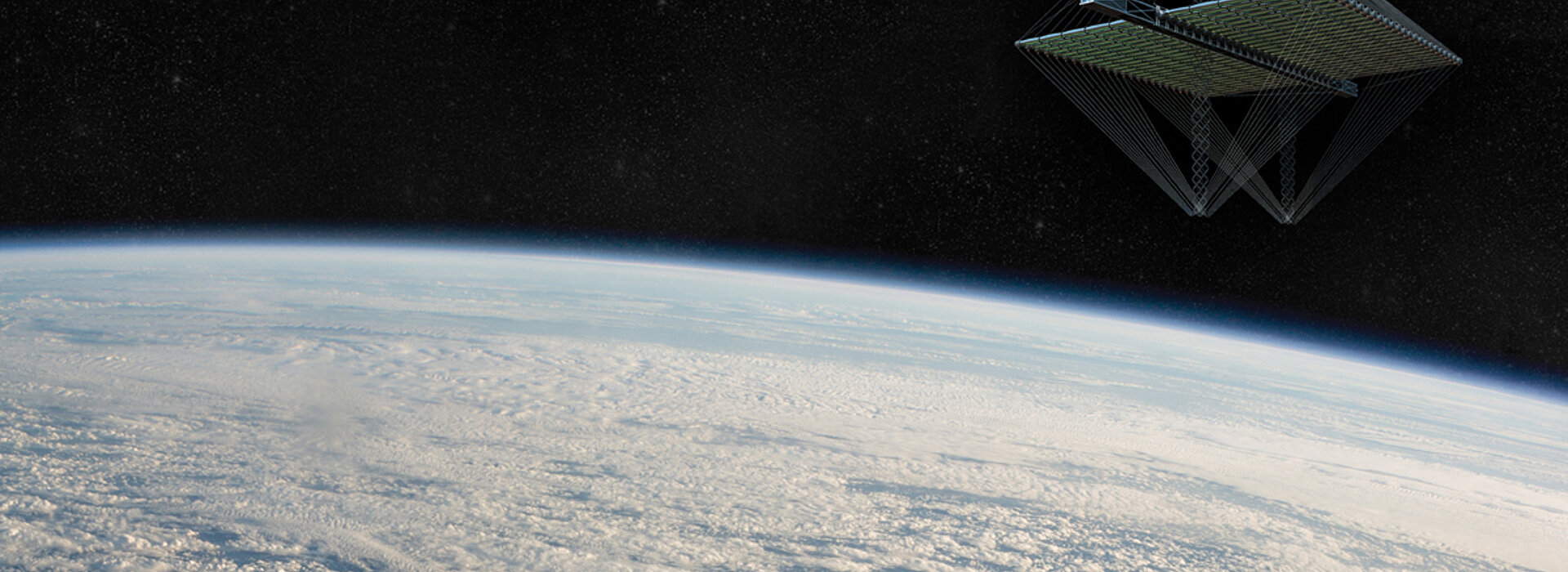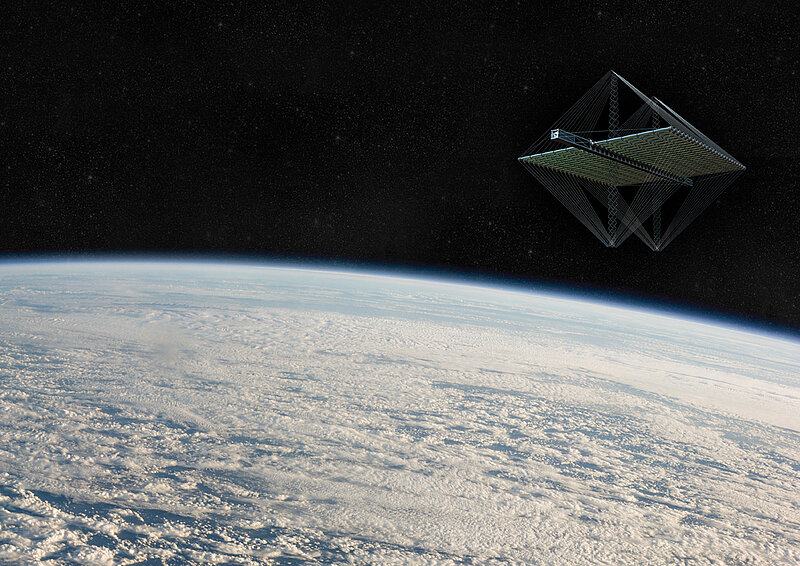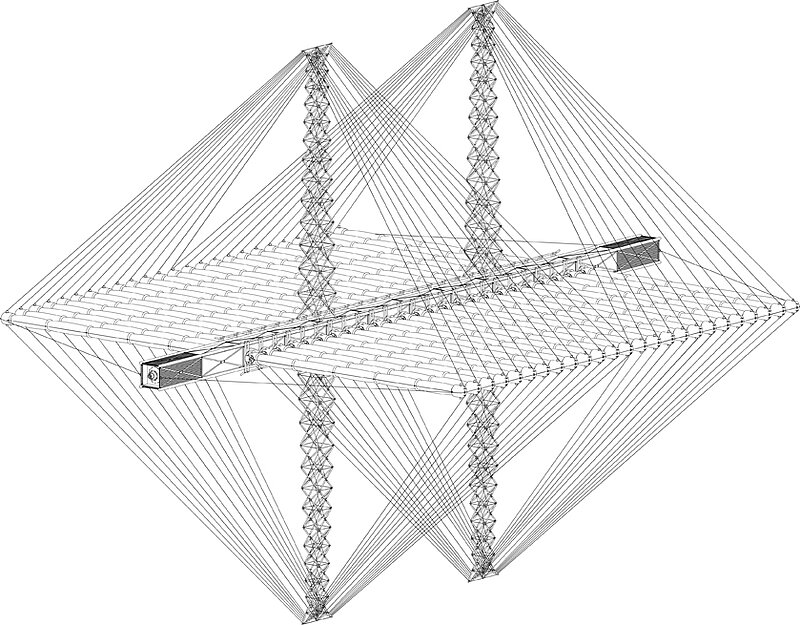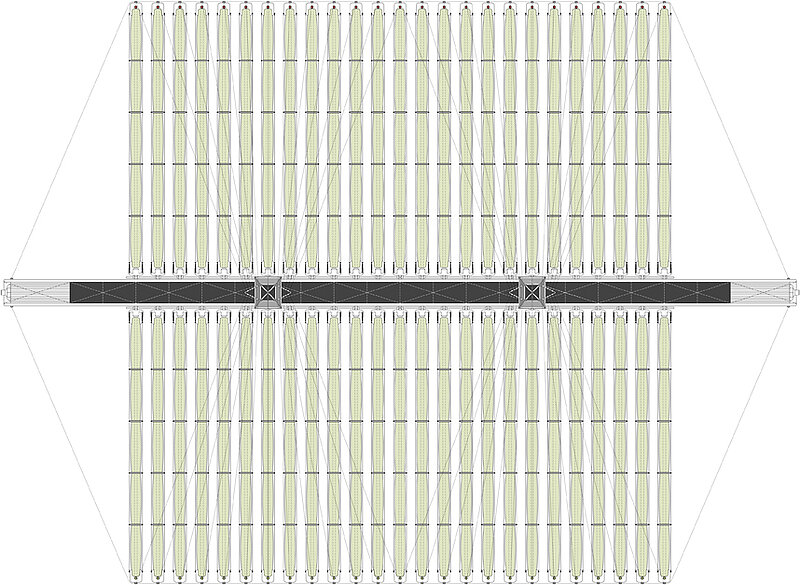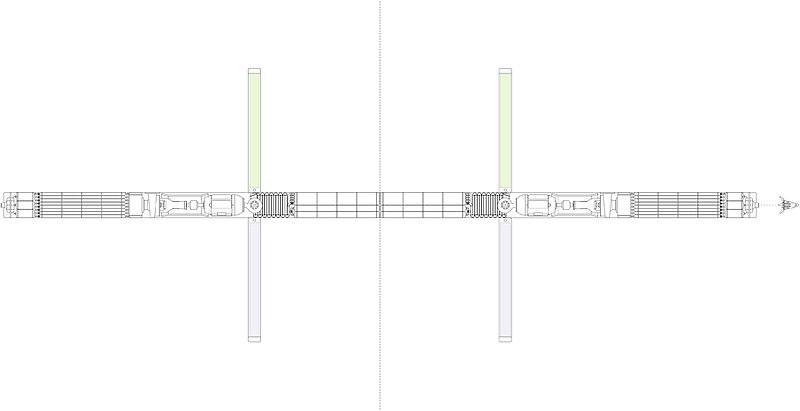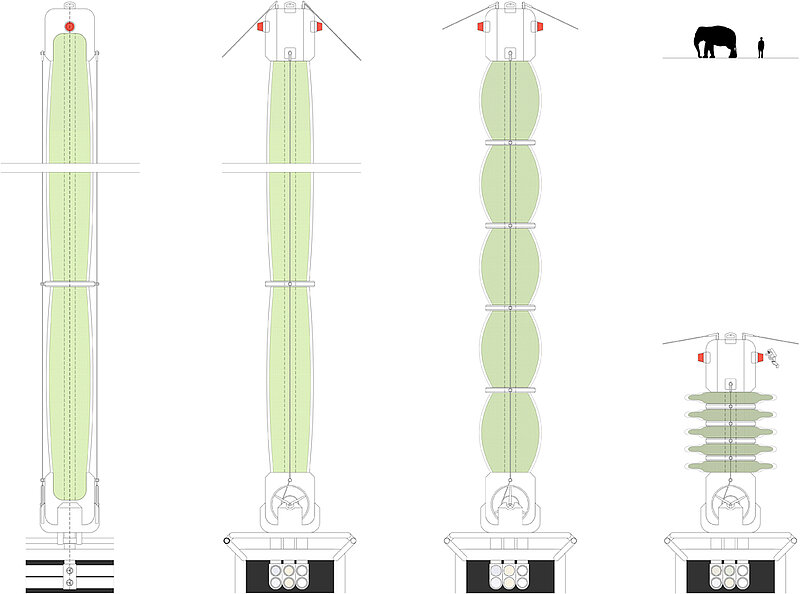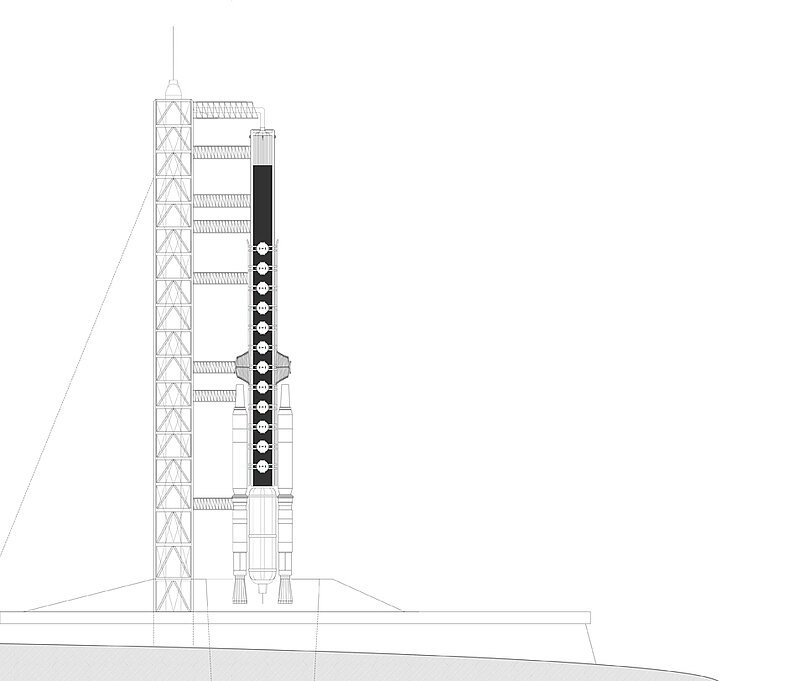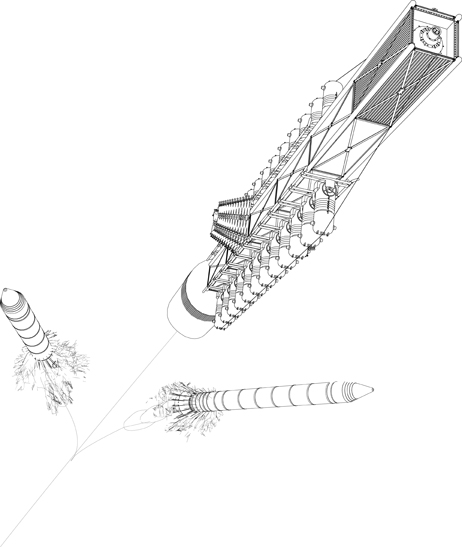ALGSAT1 An orbital refueling station
- Year2013
- LocationSpace
If we are to secure a sustainable future in space, enabling long distance & duration space flight, it will be necessary to develop technologies which will outlast the planet's diminishing fossil fuel reserves as well as addressing the need to mitigate man-made waste products onboard.
Biofuels, in particular those derived from algae, are a carbon neutral energy source. Their growth generates a multitude of by-products essential for the delicately balanced biological systems required to sustain life in space.
Nitrate rich wastewater and exhaled carbon dioxide are fed into the ALGSAT system by spacecraft in need of refueling. Two batteries of twenty five cultivators grow algae over a twenty five day yield period during which the wastewater is naturally purified by the phytoremediative capacities of the plant, and the carbon dioxide is gradually converted into oxygen.
At the end of each growth cycle, ALGSAT1 extracts algael oil from one of its cultivators (once daily over a twenty five day loop when working to full capacity), where it is refined into biodiesel over a twenty four hour period, and stored until a spacecraft docks and exchanges resources, facilitating a sustainable, closed loop system.
ALGSAT1 is to be seen as a pilot scheme for a wider potential network of stations in orbit of various celestial bodies throughout our solar system, enabling interplanetary space travel whilst negating reliance on earth borne resources.
